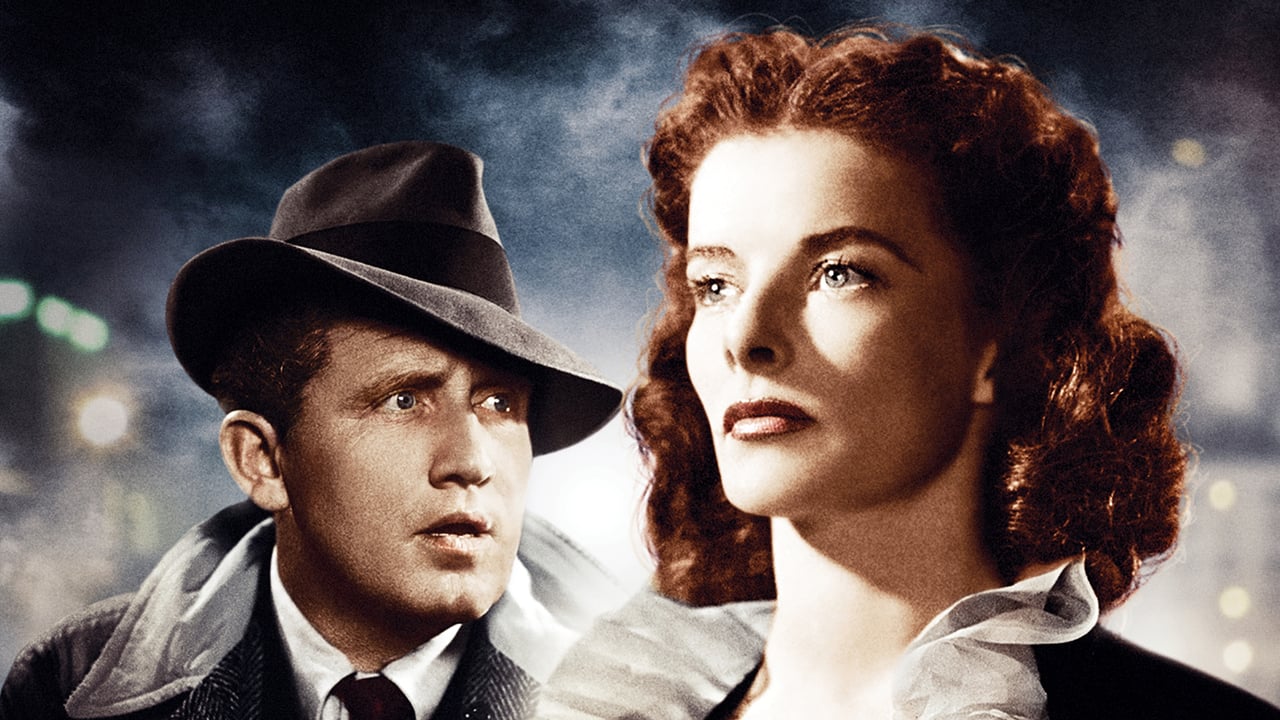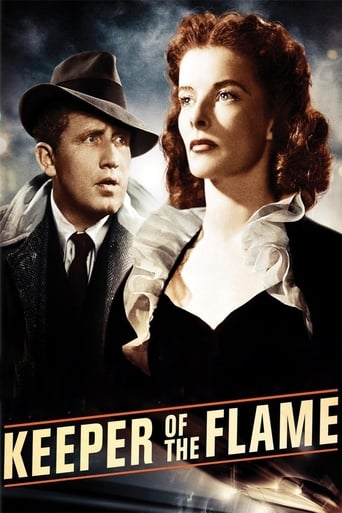

just watch it!
... View MoreIt's fun, it's light, [but] it has a hard time when its tries to get heavy.
... View MoreA movie that not only functions as a solid scarefest but a razor-sharp satire.
... View MoreThe storyline feels a little thin and moth-eaten in parts but this sequel is plenty of fun.
... View MoreKatharine Hepburn reunites with two of her favorite men in film, director George Cukor and offscreen honeybun Spencer Tracy, in this political noir thriller. It was Kate and George's sixth film together and Kate's second film with Spence. In the follow up to the extremely well-received Woman of the Year, everything is a disappointment.In the film, Kate's husband has died and the nation mourns the loss of one of their favorite war heroes. There's a gang of reporters who are anxious to write an inside scoop of the man's life, but Kate won't see any of them. Spencer Tracy, a very famous reporter, literally hikes through the back woods and a waterfall to sneak into her home and ambush her. All the while, there's an underlying mystery that isn't particularly interesting or suspenseful; Kate and the household staff keep trying to hide some sort of secret about her husband's past. Kate herself thought the plot was boring, so if you start to nod off, don't feel too bad.My mom has a theory that actors do an impeccable job if you can't think of anyone else who could have played the part as well. Well, as Keeper of the Flame was playing, in order to keep ourselves awake, my mom and I kept coming up with alternatives to the cast: Loretta Young, Rosalind Russell, Cary Grant, Fred MacMurray—the list goes on. My point is that neither actor, even though they looked convincingly in love with each other, added anything special to their roles. Half the time, Spencer Tracy wore such a terrible glare it looked like he was about to murder his costars.On a sad note, Van Johson was on his way to see the film when he was involved in a terrible car accident that left him permanently scarred. They were in the middle of filming A Guy Named Joe, and Spencer Tracy and Irene Dunne threatened to quit if Van was replaced during his convalescence. A lifelong friendship was born.
... View MoreWhen I was in high school a survey came out that the Baby Boomers didn't have heroes and that was considered a bad thing. I still think it is a very, very GOOD thing! Beware of the people you put up on a pedestal. Beware of people who care more about power than the truth. It is, sadly, extremely easy to manipulate the public, especially in times of turmoil or misery. Those are the lessons of this movie in a dramatic version of power corrupts and absolute power corrupts absolutely.I found this movie to be deeply creepy because it was so plausible--the kids who voluntarily set up action groups they didn't know were going to be used for evil, the adults who wanted to get in on the action, the stirring up of hatreds, the impulse to not tell the public to "protect" them. Haunted houses and ghouls with chainsaws are nothing to me compared to the idea of people like this succeeding. The ideology doesn't matter. What matters is the power grab.
... View MoreIn the early days of the 1940's, America was being inexorably drawn into World War Two. During that time, there was a great national Isolationist movement which sought to keep America out of the global conflict. The strongest and perhaps the most influential figures which arose were America's heroes. Among them was famed aviator, Charles Lindbergh. Having visited Germany prior to the invasion of Poland, was convinced America could not win a war against Germany. This movie called " Keeper of the Flame " represents the views of the late Robert Forest, a rich industrialist, popular and civic leader who although groomed himself as a true American patriot, was in fact a 'sleeper' Fascist. Because he believed Forest was an American hero, Steve O'Malley (Spencer Tracy) a famous war correspondent, returns home. His mission is to write the biography of Forest. Instead, as he begins writing the story, he discovers that Forest's wife Christine (Katharine Hepburn) and her family is hiding a family secret which everyone wants to keep buried with the deceased. With Richard Whorf, Margaret Wycherly and Forrest Tucker in supporting roles, this mysterious film quickly becomes a spy vs spy drama. One which Tracy and Hepburn play to the hilt. Due to her association with her husband, I could not help but see Bogart in this movie. Nevertheless, this is a dark film which easily explains the title. Recommended to anyone wanting to recall why America eventually went to war. ****
... View MoreNational hero Robert Forrest is dead. As America mourns, idealistic hack Stephen O'Malley (Spencer Tracy) arrives at the Forrest mansion, promising to do right by the heroic statesman with a comprehensive biog. That sounds reasonable, so why is Forrest's white-clad widow (Katharine Hepburn) acting so strangely? The film starts off fantastically, the first 30 bristling with energy and intrigue as sparks fly between reporter Tracy - just back from Berlin - and old flame Audrey Christie. There's some super interplay between the leads as well, and Tracy spouts spare, world-weary wisdom as only he can. But then Kate starts whispering behind closed doors to press agent Richard Whorf and it all falls apart. The blame really lies with Donald Ogden Stewart's script, which slips from wit, originality and humanism to cliché and blandness, though Cukor (Hepburn's favourite director) doesn't help matters by signposting all his plot twists.There's a good idea at the heart of this film, but it's lost in the muddled production. The effect is as if Tracy and Hepburn were offered four disparate projects and decided to film them all at once. Beginning with a sort of inspired cross between Citizen Kane and His Girl Friday, we traipse through tedious Gothic melodrama (the mid-section playing like a flabby Jane Eyre as the meeting with Forrest's mother just goes on and on and on), and wind up in a heavy-handed, unconvincing thriller, Hepburn frantically incinerating her late husband's papers. To my eyes, few films are "unintentionally hilarious", but there's a bit in the climax where Whorf bounces off the front of a car that's really badly handled and did elicit a slight chuckle. Considering the film's opening, I have to chalk up Keeper of the Flame as a major disappointment. Revel in the opening third, with its scintillating badinage and Percy Kilbride's hilarious supporting turn, but don't expect that momentum to last. By the final reels, there's just the performances to take solace in, as the screenplay loses the plot. Perhaps that's what Hepburn was chucking in the fire.
... View More